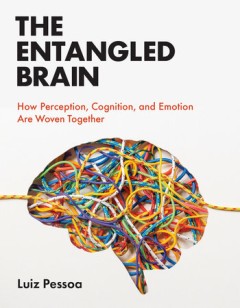Filter by

Laws of seeing
Translated from the German."This classic 1936 work in vision science, written by a leading figure in Germany's Gestalt movement in psychology and appearing in English for the first time, addresses topics that remain of major interest to vision researchers today. Wolfgang Metzger's main argument, drawn from Gestalt theory, is that the objects we perceive in visual experience are not the objects …
- Edition
- -
- ISBN/ISSN
- 9780262279710
- Collation
- 1 online resource (xxv, 203 pages) :illustrations
- Series Title
- -
- Call Number
- -

Making space :the development of spatial representation and reasoning
"A Bradford book."Spatial competence is a central aspect of human adaptation. To understand human cognitive functioning, we must understand how people code the locations of things, how they navigate in the world, and how they represent and mentally manipulate spatial information. Until recently three approaches have dominated thinking about spatial development. Followers of Piaget claim that in…
- Edition
- -
- ISBN/ISSN
- 9780262280594
- Collation
- 1 online resource (xii, 262 pages) :illustrations.
- Series Title
- -
- Call Number
- -

Looking into pictures :an interdisciplinary approach to pictorial space
"A Bradford book."AnnotationOCLC-licensed vendor bibliographic record.
- Edition
- -
- ISBN/ISSN
- 9780262275163
- Collation
- 1 online resource (xviii, 417 pages, 4 unnumbered pages of plates) :illustrations (some color).
- Series Title
- -
- Call Number
- -

The natural and the normative :theories of spatial perception from Kant to He…
"A Bradford book."OCLC-licensed vendor bibliographic record.
- Edition
- -
- ISBN/ISSN
- 9780262275057
- Collation
- 1 online resource (xii, 366 pages)
- Series Title
- -
- Call Number
- -

The psychology of art and the evolution of the conscious brain
How did the human brain evolve so that consciousness of art could develop? In The Psychology of Art and the Evolution of the Conscious Brain, Robert Solso describes how a consciousness that evolved for other purposes perceives and creates art. Drawing on his earlier book Cognition and the Visual Arts and ten years of new findings in cognitive research (as well as new ideas in anthropology and a…
- Edition
- -
- ISBN/ISSN
- 9780262284059
- Collation
- 1 online resource (xv, 278 pages) :illustrations.
- Series Title
- -
- Call Number
- -

Seeing and visualizing :it's not what you think
"In Seeing and Visualizing Zenon Pylyshyn argues that seeing is different from thinking and that to see is not, as it may seem intuitively, to create an inner replica of the world. Pylyshyn examines how we see and how we visualize and why the scientific account does not align with the way these processes seem to us "from the inside." In doing so, he addresses issues in vision science, cognitive…
- Edition
- -
- ISBN/ISSN
- 9780262316316
- Collation
- 1 online resource (xviii, 563 pages) :illustrations.
- Series Title
- -
- Call Number
- -

Representation and Recognition in Vision.
AnnotationOCLC-licensed vendor bibliographic record.
- Edition
- -
- ISBN/ISSN
- 9780262272155
- Collation
- 1 online resource (402 pages)
- Series Title
- -
- Call Number
- -

Spaces speak, are you listening? :experiencing aural architecture
How we experience space by listening: the concepts of aural architecture, with examples ranging from Gothic cathedrals to surround sound home theater.OCLC-licensed vendor bibliographic record.
- Edition
- -
- ISBN/ISSN
- 9780262268714
- Collation
- 1 online resource (xi, 437 pages) :illustrations, music
- Series Title
- -
- Call Number
- -

Social cognition :making sense of people
-- Neal Roese, Department of Psychology, Northwestern University.OCLC-licensed vendor bibliographic record.
- Edition
- -
- ISBN/ISSN
- 0585077827
- Collation
- 1 online resource (xi, 602 pages) :illustrations.
- Series Title
- -
- Call Number
- -

The Entangled Brain: How Perception, Cognition, and Emotion Are Woven Together
A new vision of the brain as a fully integrated, networked organ. Popular neuroscience accounts often focus on specific mind-brain aspects like addiction, cognition, or memory, but The Entangled Brain tackles a much bigger question: What kind of object is the brain? Neuroscientist Luiz Pessoa describes the brain as a highly networked, interconnected system that cannot be neatly decomposed in…
- Edition
- Ed. 1
- ISBN/ISSN
- 9780262372107
- Collation
- -
- Series Title
- -
- Call Number
- 155.2 PES e
 Computer Science, Information & General Works
Computer Science, Information & General Works  Philosophy & Psychology
Philosophy & Psychology  Religion
Religion  Social Sciences
Social Sciences  Language
Language  Pure Science
Pure Science  Applied Sciences
Applied Sciences  Art & Recreation
Art & Recreation  Literature
Literature  History & Geography
History & Geography